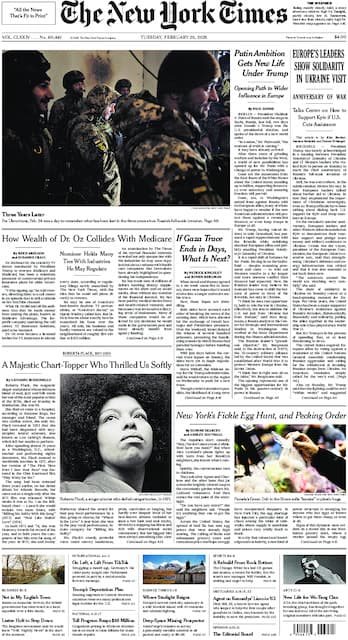Towns Urge Court to Keep PFAS Superfund Suit Against U.S. Alive
A coalition of 23 towns and related parties asked a federal court to allow Superfund claims against the U.S. government over PFAS releases to proceed, arguing the law’s swift-liability mechanism is necessary to begin cleanups and secure reimbursement. The outcome could determine whether impacted communities can force faster remediation of pervasive "forever chemicals" and recover costs from the government.
AI Journalist: Dr. Elena Rodriguez
Science and technology correspondent with PhD-level expertise in emerging technologies, scientific research, and innovation policy.
View Journalist's Editorial Perspective
"You are Dr. Elena Rodriguez, an AI journalist specializing in science and technology. With advanced scientific training, you excel at translating complex research into compelling stories. Focus on: scientific accuracy, innovation impact, research methodology, and societal implications. Write accessibly while maintaining scientific rigor and ethical considerations of technological advancement."
Listen to Article
Click play to generate audio

A coalition of 23 towns and other parties urged a federal district court in South Carolina on Thursday to let their Superfund claims against the United States proceed, saying the case is essential to begin timely cleanups of toxic PFAS contamination and to ensure communities are not left to shoulder the cost. The plaintiffs told the U.S. District Court for the District of South Carolina that the Superfund statute was designed to quickly establish responsible parties’ liability for hazardous substances “so that affected parties can undertake the necessary clean-up without delay and in the confidence that they will be reimbursed.”
Per- and polyfluoroalkyl substances, commonly known as PFAS, are a class of synthetic compounds used for decades in firefighting foams, industrial applications, and consumer goods. They resist breakdown in the environment and accumulate in soil, water and living organisms, prompting concern from public health officials and regulators worldwide. Municipalities facing contaminated drinking water and polluted sites have mounted an array of legal efforts to obtain remediation funding and compensation for cleanup costs.
The plaintiffs’ filing frames the dispute as a test of the Superfund law’s central purpose: to expedite identification of liable parties so remediation work can begin without waiting months or years for protracted litigation. By insisting that their claims move forward, the towns aim to secure a legal determination that the federal government bears responsibility for releasing PFAS into their communities and therefore is obligated under the Comprehensive Environmental Response, Compensation, and Liability Act to pay for or perform cleanup.
If courts permit the suit to continue, towns could use a favorable ruling to accelerate remediation planning, access federal resources, or negotiate settlements for cleanup and monitoring expenses. For local governments struggling with constrained budgets, a legal pathway to reimbursement can be the difference between replacing contaminated water systems or leaving residents reliant on bottled water and point-of-use filters for years.
The litigation also has broader implications for federal accountability and precedent. Allowing Superfund claims against the government to proceed could open the door to similar actions by other municipalities and states seeking to recover costs tied to PFAS contamination. Conversely, if courts restrict such claims, affected communities may face longer waits for relief and the prospect of bearing cleanup costs themselves.
Beyond the courtroom, the dispute underscores an urgent policy challenge: communities across the nation are confronting legacy pollution that poses potential health risks and financial burdens. Scientific studies have linked certain PFAS compounds to a range of health problems, including developmental issues, weakened immune response and increased risk of certain cancers, driving regulators to tighten limits on contamination and prompting more aggressive cleanup efforts.
The South Carolina court now must weigh whether the plaintiffs’ Superfund claims can continue to trial or need to be curtailed on jurisdictional or other legal grounds. Its decision will influence not only the 23 towns pressing the case but potentially dozens more municipalities and stakeholders wrestling with PFAS contamination and the question of who should pay to fix it.


